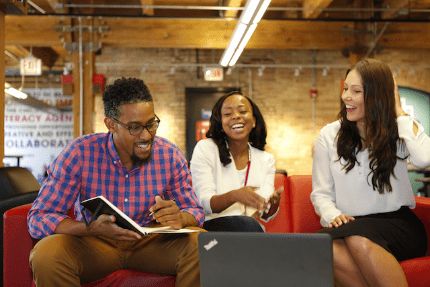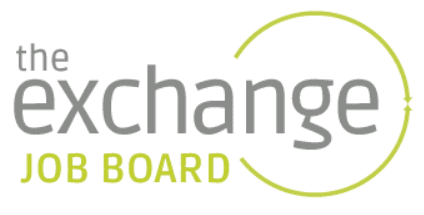This past summer I was an Education Pioneers Summer Fellow. What does that mean? To me, it means I gained incredible insight and experience collaborating with and learning from a diverse and courageous group of people who are ready to positively impact the field of education.
I was drawn to Education Pioneers as an organization that recruits graduate students (like me) and professionals who seek to work in educational leadership positions outside of the classroom, so students and teachers succeed in the classroom. This is made possible through their deep relationships with partner organizations—from school districts to nonprofits and charter schools—who serve as hosts for Fellows.
EP intentionally matched me with an organization that fit my skill sets, experiences, and interests. My placement aligned with me as a professional and individual: I worked for Innovare Social Innovation Partners in Chicago, an organization embedded in the belief that social innovation is unique in its ability to promote educational equity. The core of Innovare’s work is focused on improving the way education organizations operate. As such, Innovare helps build public-private partnerships to help dismantle divides and apply best practices to address educational inequity.
During my time at Innovare, I combined my quantitative and analytical skills with my experience and studies in education and social policy.
My supervisors, co-founders AJ DeLeon and Nick Freeman (both EP Alums), also provided me with opportunities to see education at work in nuanced and impactful ways. For example, I was able to work with leaders and sectors within Chicago Public Schools, the nation’s 3rd largest school district.) I used data analytics and strategic planning to work on numerous projects, from analyzing the demographic and academic trends of student disciplinary records, to curating original rubrics and standards for performance assessment of school leaders
 |
My experiences not only rendered unique insights and networking opportunities, but they also produced an important gift and reminder of something I heard when I first started teaching— “Students cannot achieve what they cannot see.” It turns out that I was the student this summer. Through my hands-on experience, I learned of the many needs and opportunities to work in education outside the classroom and saw how my personal, professional, and academic background fit within that work.
As a Chicago transplant, Education Pioneers’ professional development throughout the summer provided important opportunities for learning, networking, collaborating, and supplementing my day-to-day work. As a former educator, I am very familiar with the structure and daily operations of schools. However, some of that knowledge was not completely transferrable across state lines. Education Pioneers’ workshops provided the institutional knowledge that I needed to better understand education within the Chicago landscape. In addition to providing context, the workshops also equipped us with important skills like recognizing and leveraging leadership styles, change management, and stakeholder analysis.
 |
With a team from my Chicago cohort, my summer culminated with a Capstone presentation on the Illinois Funding Bill, and in particular, its education funding formula. My team and I shared how funding is allocated to schools across f Illinois, specifically addressing the implications and contributions of Illinois political history, as well as the implications of recent legislation for budget allocation.
What I enjoyed most about the Capstone presentations is that it served as a cross-collaborative learning experience. I learned from my peers and the amazing guests and panelists invited as part of their presentations. For example, one group invited Professor Reuben Miller from the University of Chicago who shared his work on “Mass Supervision”—the life circumstances and outcomes of parolees and ex-felons. His work and discussion was inspiring and served as a compelling reminder of how our work in education can be a deterrence to negative cyclical effects of structural inequality.
 |
As I enter my second year of public policy school, I enter as an Education Pioneers Alumna, and budding social policy analyst who has caught sight of what she can achieve. I enter this year and this work purpose driven in pursuit of my reason for being.
By Martine Aurelien



